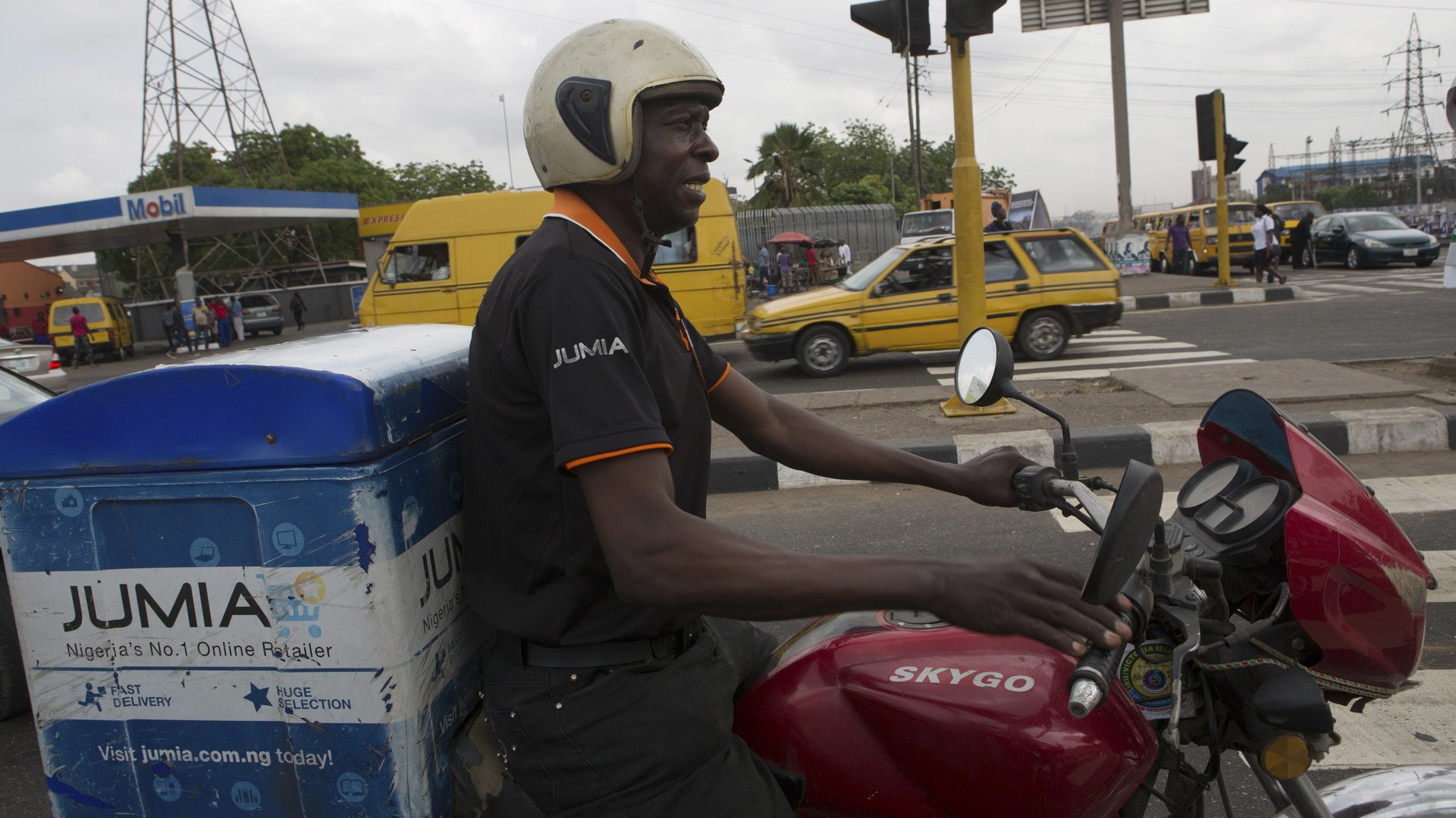A gory murder is forcing Nigerian e-commerce to rethink payment on delivery
On Mar. 25, Chukwuma Eleje, a delivery agent, went out on what seemed like a routine delivery trip but he never returned home.


On Mar. 25, Chukwuma Eleje, a delivery agent, went out on what seemed like a routine delivery trip but he never returned home.
Eleje was delivering for major online retailer Jumia as a third-party logistics partner. He was scheduled to deliver the latest iPhone 7 to a customer in Port Harcourt, the bustling oil hub in Rivers state, in Nigeria’s south. Soon after he was reported missing and following an investigation by local police, Eleje’s corpse was found in a septic tank at the delivery address.
Unable to pay for items ordered under the payment on delivery option, Sodienye Mbatumukeke, 26, along with two accomplices allegedly killed Eleje, a father of four, and tried to dispose the body.
Eleje’s gruesome murder has highlighted security challenges delivery men face and has kicked off a debate about the payment on delivery option for online retail businesses in Nigeria. Asides the murder in Port Harcourt, there have been other reports of delivery men involved in incidents of robbery and intimidation by customers. For businesses, there’s also the risk of incurring the cost of delivery trips for unconfirmed orders.
Already, in a quick reaction, PayPorte, a two-year old online retail store, has announced that it’s canceling the payment on delivery option for shoppers. The decision, Eyo Bassey, Payporte CEO, admits, has been “necessitated by the increasing risk and security challenges posed by this payment option.” Bassey says the move is also aimed at reducing the amount of cash carried by delivery staff.
Jumia didn’t respond to Quartz’s email queries on possible changes to its payment on delivery policy. It said in a statement it was “saddened” by Eleje’s death and that “delivery associates and logistic partners are an integral part our e-commerce business.”
Konga, a close rival with Jumia also didn’t respond to queries about any changes to is delivery policy.
Trust issues
E-commerce pioneers learned very quickly that, to stand any chance of short-term survival and long-term profitability, while trying to help Nigerians enjoy the convenience of online purchases, their businesses needed to solve another problem simultaneously: convenience of payments.
In a country where the pioneering e-commerce startups were met with skepticism and mistrust, customers’ experiences with frequent failures during online payment transactions only served to worsen the perception. As a workaround, payment on delivery options quickly became a popular choice with customers who preferred to double-check items in hand before paying in cash or with a card. With banks slow to create e-commerce-specific solutions and dominant payment gateways at the time particularly unreliable, payment on delivery appeared a timely fix.
But those early-day peculiarities are no longer as prevalent. With a number of payment companies offering reliable solutions, e-commerce companies are recording more online payments. Konga and Jumia have created in-house solutions, building and commissioning payment solutions to enable more online payments.
However, to get more customers on board with paying online and shedding the dependence on the payment on delivery option, e-commerce companies have to fix trust deficits. Oluyomi Ojo, founder of Printivo, an online design and printing company says its time for online retail businesses to tackle the latent trust problem. Ojo argues e-commerce companies should put more effort into addressing the lack of trust of Nigerian shoppers as payment on delivery was always only ever a temporary solution. “Most customers choose it not because there are not alternatives but because of trust issues.”
In contrast, Olumide Olusanya, CEO of Gloo.ng, an online supermarket, says the focus should be on offering customers options they prefer rather than dictating to them. “We will continue finding creative solutions to accept cash payments,” Olusanya said in a statement. At the moment, only a third of Gloo.ng customers opt for the cash payment option. Regardless, Olusanya maintains that if customers want to pay in cash, “the onus is with us to find creative, efficient and frictionless ways of accomplishing that.”
If businesses pull the plug on the payment on delivery option, there might be an upside, Printivo’s Ojo says. “Those whose customers are used to payment on delivery will experience a drop in cash flow but will be able to filter real orders from unconfirmed orders,” Ojo tells Quartz. “With a lot of card payment services that actually work today, I think it’s a risk worth taking. Let’s build trust.”